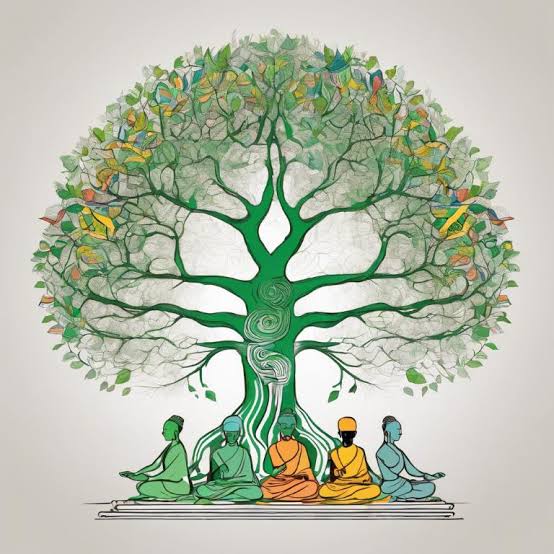Patanjali yoga sutras with meaning sutras 16 – 20
These sutras offer further insights into the path of yoga and the different states of consciousness that can be attained through practice and self-awareness
Sutra 16: Tat param purusha-khyateh guna-vaitrishnyam
Meaning: When the true nature of the Purusha (the individual consciousness) is realized, there is no longer any craving for the qualities of nature (the gunas).
This sutra highlights that by recognizing and realizing our true nature, we can transcend the desires and attachments associated with the fluctuations of the mind our thinking sometimes sad happy depress anger.
Sutra 17: Vitarka-vicara-ananda-asmita-
Meaning: The state of samprajnata (meditative absorption) is accompanied by reasoning, reflection, bliss, and a sense of individuality.
This sutra describes the different aspects experienced during the state of samprajnata, where the mind is focused and absorbed in meditation. this sutra tell us we get consciousness without any problematic stress of wrong things .
Sutra 18: Virama-pratyaya-abhyasa-purvah samskara-shesha-anyah
Meaning: The other type of samadhi (meditative absorption) is achieved through the practice of cessation, where the residue of past impressions remains.
This sutra explains the process of achieving a different type of samadhi, where the mind enters a state of stillness and cessation, yet the residual impressions from past experiences remain.
Sutra 19: Bhava-pratyayo videha-prakriti-layanam
Meaning: For those who are not embodied, their experiences arise from the subtle elements of nature.
This sutra suggests that for beings who are not in physical form, their experiences arise from the subtle elements of nature. god is in superconscious state we are in state with lots of mental disorders we have to remove it and have to achieve consciousness .
Sutra 20: Shraddha-virya-smriti-samadhi-
Meaning: For others, faith, energy, memory, concentration, and wisdom are the means to realization.
This sutra highlights that for individuals who are not yet in a state of samadhi, faith, effort, memory, concentration, and wisdom are the key factors that lead to self-realization.
